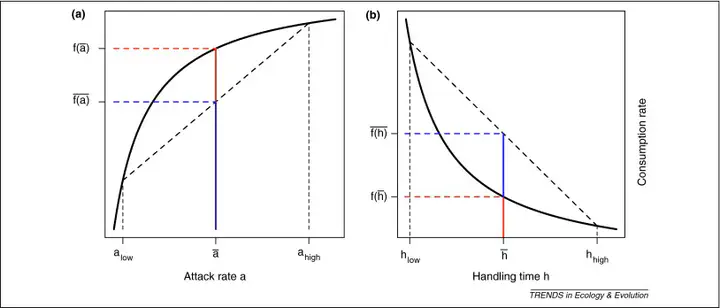
Abstract
Natural populations consist of phenotypically diverse individuals that exhibit variation in their demographic parameters and intra- and inter-specific interactions. Recent experimental work indicates that such variation can have significant ecological effects. However, ecological models typically disregard this variation and focus instead on trait means and total population density. Under what situations is this simplification appropriate? Why might intraspecific variation alter ecological dynamics? In this review we synthesize recent theory and identify six general mechanisms by which trait variation changes the outcome of ecological interactions. These mechanisms include several direct effects of trait variation per se and indirect effects arising from the role of genetic variation in trait evolution.